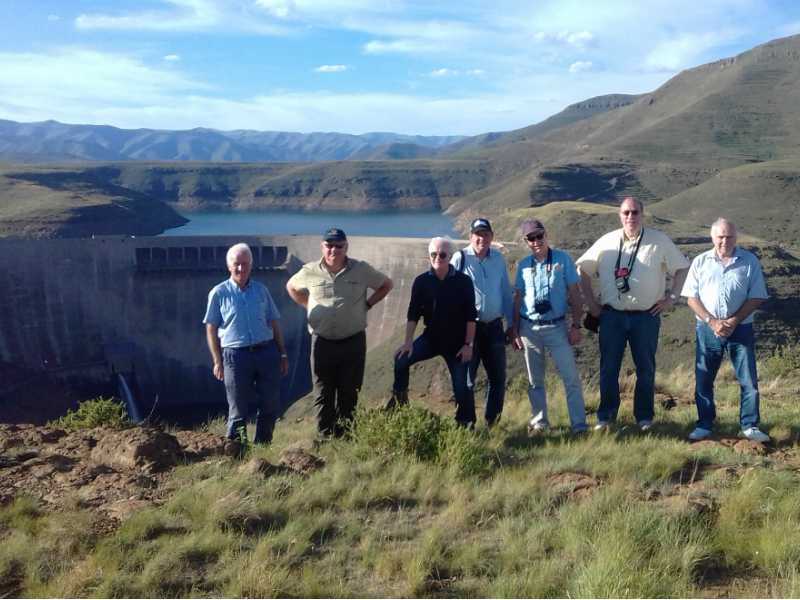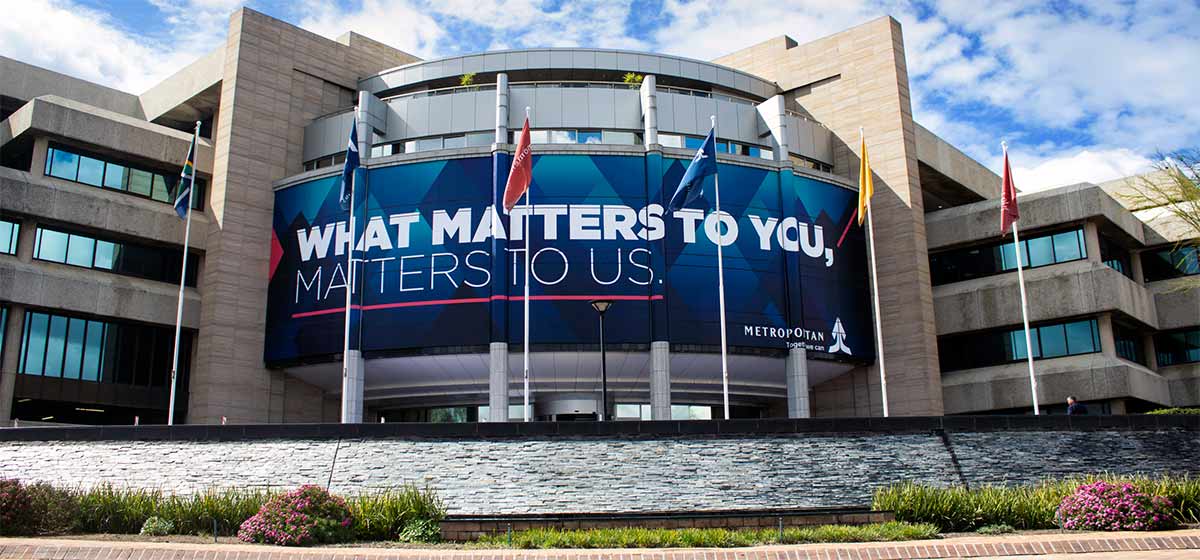
LHWP II: Engineering Panel of Experts tour Katse Dam on first joint mission (from left to right): John Sharp, Dean Brox, Clemente Curnis, David Lees, Ian Firth, Brian Sadden and David Powell. Apologies: Palmi Johannesson
The Lesotho Highlands Development Authority (LHDA) has appointed an engineering Panel of Experts for Phase II of the Lesotho Highlands Water Project.
The appointments were finalised in December 2018 and the panel’s first mission kicked off in January 2019 with a site visit to the project area in the Mokhotlong district.
The panel members hail from as far afield as the United Kingdom, Europe, the United States and Australia. All are highly respected and have earned international esteem for their specific expertise. Their combined knowledge covers tunnelling, bridges, concrete faced rockfill dams (CFRD), hydro-mechanical and geotechnical engineering, grouting and construction.
“The LHDA’s appointment of an external panel of experts to provide technical reviews of the major works of Phase II reflects its commitment to implementing Phase II to the highest quality and in accordance with internationally recognised standards to minimise the risk of engineering errors,” confirms Tente Tente, LHDA Phase II Divisional Manager.
At the start of the Joint Mission, the panel was introduced to the full scope of the project and met with LHDA CE, Mrs Refiloe Tlali, and the Lesotho Highlands Water Commission before embarking on the visit to Polihali.
The Joint Mission followed closely on the formal site handover to the WBHO/LSP Joint Venture for the civils works at Polihali and Katse village. The scope of work under this contract includes earthworks and the creation of platforms for buildings, water and wastewater systems, landfill, roads, drainage, electrical and telecommunications networks.
The LHDA also has an environmental Panel of Experts engaged to review social and environmental activities. This is to ensure that its implementation of social, environmental and public health programmes is in accordance with internationally recognised standards.
Phase II of the Lesotho Highlands Water Project builds on the successful completion of Phase I in 2003. It delivers water to the Gauteng region of South Africa and utilises the water delivery system to generate hydro-electricity for Lesotho.
Phase II will increase the current supply rate of 780 million cubic metres per annum incrementally to more than 1,270 million cubic metres per annum. At the same time, it will increase the quantity of electricity generated in Lesotho and is a further step in the process of securing an independent electricity source to meet Lesotho’s domestic requirements.








